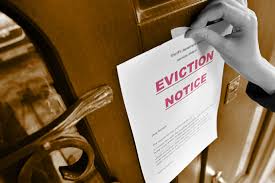If you’re a landlord in New Mexico, navigating eviction procedures is crucial. Understanding the steps involved, from serving notices to attending court hearings, is vital for success. By knowing your rights and obligations, you can efficiently resolve tenant issues.
This article explores the specific procedures, including dealing with squatters and estimating costs. Protect your property, stay compliant with state laws, and manage evictions confidently by familiarizing yourself with theNew Mexico eviction process.
New Mexico Eviction Notice and Lawsuit Process
If you’re a landlord in New Mexico, you must serve a specific three- to seven-day eviction notice before filing a lawsuit against a tenant. The New Mexico eviction process requires landlords to follow these steps diligently.
First, serve the New Mexico eviction notice according to the reason for eviction, such as non-payment of rent or lease violations. Next, if the tenant doesn’t comply, you can proceed to file an eviction lawsuit with the court. Remember to include all necessary documentation and evidence to support your case.
Once the lawsuit is filed, the court will serve the tenant a summons, initiating the legal proceedings. It’s crucial to adhere to the specific timelines and procedures outlined in the New Mexico eviction process to ensure a smooth and lawful eviction.
Court Judgment and Moving Out
Upon receiving a summons, you and the tenant will attend a court hearing to address the eviction matter, where a judge will issue a judgment declaring the rental agreement terminated. If the judgment is in your favor, a Writ of Restitution may be issued to restore possession to you as the landlord.
It’s crucial to understand that either party has the right to appeal the judgment if they disagree with the court’s decision. Following the issuance of the writ of restitution, the tenant typically has 3-7 days to move out of the rental property.
Ensure you follow the legal procedures diligently to enforce the judgment and regain possession of your property promptly.
Landlord’s Responsibilities and Lawsuit Filing
Your responsibilities as a landlord include serving a New Mexico eviction notice and filing a lawsuit with the court. When it comes to serving eviction notices, you must adhere to specific timelines based on the reason for eviction. Whether it’s a Rent Demand Notice, Lease Violation Notice, Repeat Lease Violation Notice, or an Unconditional Notice to Quit, each type requires different notice periods.
Additionally, when filing an eviction lawsuit, you need to prepare a complaint outlining the grounds for eviction and any monetary claims. Ensure that your petition includes proof of compliance and be aware that monetary claims will be handled separately from the eviction process. It’s crucial to follow these steps diligently to navigate the eviction process smoothly.
Court Procedures in Eviction Cases
During an eviction case in New Mexico, you must comply with court procedures to ensure a legal and efficient process. The court will issue a summons to the tenant, detailing the cause of the complaint, the answer day, and the consequences of non-appearance.
The court hearing must take place 7-10 days after the tenant receives the summons, with various methods used to serve the summons. It’s essential for the tenant to file an answer before the court hearing to present their side of the case.
Evicting Squatters in New Mexico
As you proceed with the New Mexico eviction process, understanding the protocol for evicting squatters is crucial for landlords. Squatters can be charged as criminal trespassers in New Mexico, but they may also have certain rights under specific conditions.
It’s important to be aware of the criteria for squatters’ rights and the process they might follow to claim legal ownership. If you suspect a squatter on your property, take swift action by following the necessary steps to address the situation promptly.
Conclusion
Now that you understand the eviction process in New Mexico, you can confidently navigate the complexities of landlord-tenant disputes. By following the proper procedures, knowing your rights, and fulfilling your responsibilities, you can protect your property and investments while complying with state laws.
Stay proactive in managing evictions to ensure a smooth and legal resolution.

